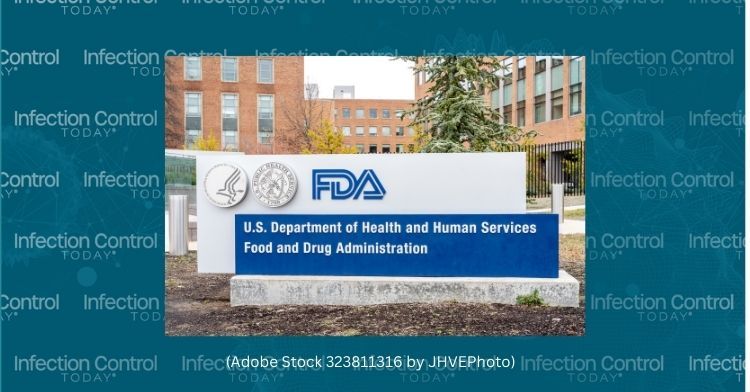Atovaquone Oral Suspension Recall: Potential Bacillus cereus Contamination
Important Recall Notice: AvKARE recalls Atovaquone Oral Suspension due to potential Bacillus cereus contamination. Learn about risks, recommendations, and how to proceed if you have this product.
FDA
(Adobe Stock 323811316 by JHVEPhoto)

FDA has announced that AvKARE has issued a recall for lot # AW0221A of Atovaquone Oral Suspension USP, 750mg/5mL, due to potential contamination with Bacillus cereus. This contamination was discovered during stability testing at a third-party laboratory.
Risk Statement: The affected population, especially those individuals who are immunocompromised, face a significant risk of microbial contamination leading to severe, life-threatening infections such as endocarditis and necrotizing soft tissue infections.
Endocarditis typically caused by a bacterial infection, results in inflammation of the lining of the heart valves and chambers. Effective treatment involves a course of antibiotics or other medications over several weeks, and occasionally, surgical intervention. Swift and thorough treatment significantly increases survival rates and successful recovery, while untreated endocarditis can result in fatal outcomes.
Currently, AvKARE has not received any reports of adverse events related to this recall. However, patients are urged to take immediate action if they have the affected product.
Background: Atovaquone Oral Suspension USP is used for the prevention and treatment of Pneumocystis jiroveci pneumonia (PCP) in adults and children 13 years of age and older who are unable to tolerate other medications such as trimethoprim-sulfamethoxazole.
According to CDC under “Pneumocystis pneumonia (PCP) is a serious infection caused by the fungus Pneumocystis jirovecii. Most people who get PCP have a medical condition that weakens their immune system, like HIV/AIDS, or take medicines (such as corticosteroids) that lower the body’s ability to fight germs and sickness. In the US, people with HIV/AIDS are less likely to get PCP today than before the availability of antiretroviral therapy. However, PCP is still a substantial public health problem. Much of the information we have about PCP and its treatment comes from caring for patients with HIV/AIDS.”
The CDC explains the nomenclature of the disease. Scientists have revised both the classification and the nomenclature of this organism since its initial discovery in HIV patients during the 1980s. Previously categorized as a protozoan, Pneumocystis jirovecii is now recognized as a fungus. Initially known as Pneumocystis carinii, it was later renamed Pneumocystis jirovecii. Although the abbreviation "PJP" was considered when the name changed, the preferred abbreviation for Pneumocystis jirovecii pneumonia remains "PCP" to prevent confusion.
Recommendations:
- Patients should contact their health care provider if they have experienced any issues related to using this product.
- Individuals with the recalled product should stop using it and either return it to the place of purchase or dispose of it safely.
- For further inquiries regarding this recall, individuals can reach out to AvKARE at 1-855-361-3993 or email drugsafety@avkare.com.
Health care professionals and patients are strongly encouraged to report any adverse events or side effects associated with the use of this product to the FDA's MedWatch Safety Information and Adverse Event Reporting Program. Reports can be submitted online, or forms can be downloaded and submitted via mail or fax.
- Complete and submit the report online.
- Download form or call 1-800-332-1088 to request a reporting form, then complete and return to the address on form, or submit by fax to 1-800-FDA-0178.
Newsletter
Stay prepared and protected with Infection Control Today's newsletter, delivering essential updates, best practices, and expert insights for infection preventionists.
Reducing Hidden Risks: Why Sharps Injuries Still Go Unreported
July 18th 2025Despite being a well-known occupational hazard, sharps injuries continue to occur in health care facilities and are often underreported, underestimated, and inadequately addressed. A recent interview with sharps safety advocate Amanda Heitman, BSN, RN, CNOR, a perioperative educational consultant, reveals why change is overdue and what new tools and guidance can help.
New Study Explores Oral Vancomycin to Prevent C difficile Recurrence, But Questions Remain
July 17th 2025A new clinical trial explores the use of low-dose oral vancomycin to prevent Clostridioides difficile recurrence in high-risk patients taking antibiotics. While the data suggest a possible benefit, the findings stop short of statistical significance and raise red flags about vancomycin-resistant Enterococcus (VRE), underscoring the delicate balance between prevention and antimicrobial stewardship.
What Lies Beneath: Why Borescopes Are Essential for Verifying Surgical Instrument Cleanliness
July 16th 2025Despite their smooth, polished exteriors, surgical instruments often harbor dangerous contaminants deep inside their lumens. At the HSPA25 and APIC25 conferences, Cori L. Ofstead, MSPH, and her colleagues revealed why borescopes are an indispensable tool for sterile processing teams, offering the only reliable way to verify internal cleanliness and improve sterile processing effectiveness to prevent patient harm.
The Next Frontier in Infection Control: AI-Driven Operating Rooms
Published: July 15th 2025 | Updated: July 15th 2025Discover how AI-powered sensors, smart surveillance, and advanced analytics are revolutionizing infection prevention in the OR. Herman DeBoard, PhD, discusses how these technologies safeguard sterile fields, reduce SSIs, and help hospitals balance operational efficiency with patient safety.
Targeting Uncertainty: Why Pregnancy May Be the Best Time to Build Vaccine Confidence
July 15th 2025New national survey data reveal high uncertainty among pregnant individuals—especially first-time parents—about vaccinating their future children, underscoring the value of proactive engagement to strengthen infection prevention.